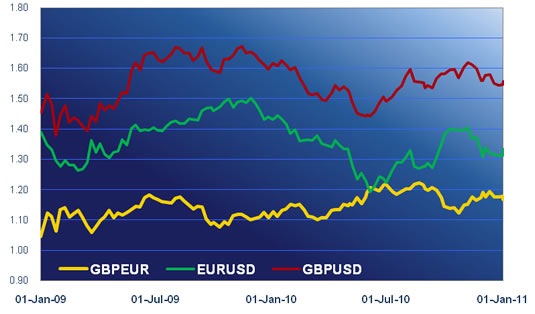– But falls elsewhere on weak services PMI
– Key US and Canadian employment reports today
Good morning. An American cat litter manufacturer has filed suit against a competitor over a “talking cat” that features in their TV advertisements. The feline front-man claims that cats prefer Fresh Step to Super Scoop because it is less malodorous and cats “know what they like”. The manufacturer of Super Scoop objects to the “false message” in the advert on the basis that “cats do not talk”. Were Super Scoop to win its case on such a technicality it would open the door to a flood of litigation. Going to work on an egg is impossible. Fingers can’t walk. A Mars a day helps you raise your cholesterol level. Beans means legumes. Mum hasn’t gone to Iceland because she’s worried about the volcano.
And before long there could be accusations that the euro is not a single currency. That position has not yet been reached but investors are increasingly conscious that it is a 17-speed one. A glance down the list of government bond yields shows Austria paying 3.59% for five-year borrowings, Belgium 3.19%, France 2.19%, Germany 1.83%, Italy 3.76%, Portugal 6.18% and Spain 4.83%. (Britain pays 2.31% and the US can pick up five-year money for 2.08%.) Whilst the Chinese government appears happy to lend to troubled peripheral Euroland governments the investor in the street is less enthusiastic. That lack of enthusiasm for all things euro allowed the currency to fall to a four-month low against the US dollar on Thursday.
It also handed the pound another winning day, adding half a euro cent in the process. The success of sterling/euro was somewhat misleading though. It was lower against almost everything else apart from the South African rand. Sterling only had one economic statistic to cope with yesterday and it fumbled it like an Australian fielder. The services sector purchasing managers’ index (PMI) was supposed to be steady at 53.0; not spectacularly good but still comfortably in the growth zone above 50. Instead, it fell to 49.7 and into contraction territory. The news cost the pound an almost instant half cent against the US dollar and the euro, both of which it later recovered. The difference was that its recovery against the dollar was short-lived. Investors’ optimism for today’s US employment report carried the US currency further ahead. Only the New Zealand dollar was able to keep pace with it.
There are no UK data on today’s schedule (unless the Halifax releases its December house price index). Switzerland has announced an increase in its unemployment rate from 3.6% to 3.8% and Germany says retail sales there fell by -2.4% in November. Yet to come from Europe are the revised figures for Euroland economic growth in the third quarter of 2010 (should be 0.4%) Euroland unemployment (10.1%) and German industrial production.
The day’s two main ecostats will be Canada’s net change in employment at midday and the US employment report at half past one. Both are important for their respective currencies. The Canadian economy is forecast to have added 20k jobs in December while US non-farm payrolls are expected to reach a seven-month high with the addition of between 150k (Bloomberg) and 175k (Reuters) jobs. Of the two, it is the US number that is likely to generate the most heat and light. Stronger than expected assessments of the employment situation from the private sector on Wednesday will have buoyed investors’ expectations for the official release. Because of that it is likely that a sub-150k number would send the dollar lower. After a rally in anticipation of a good figure it is less easy to guess how strong a strong figure would need to be in order to be strong enough to strengthen the dollar further. The market has certainly been sympathetic to the dollar so far this year but that sympathy could be strained if the numbers don’t stack up in the way investors hope. Have a good weekend.






